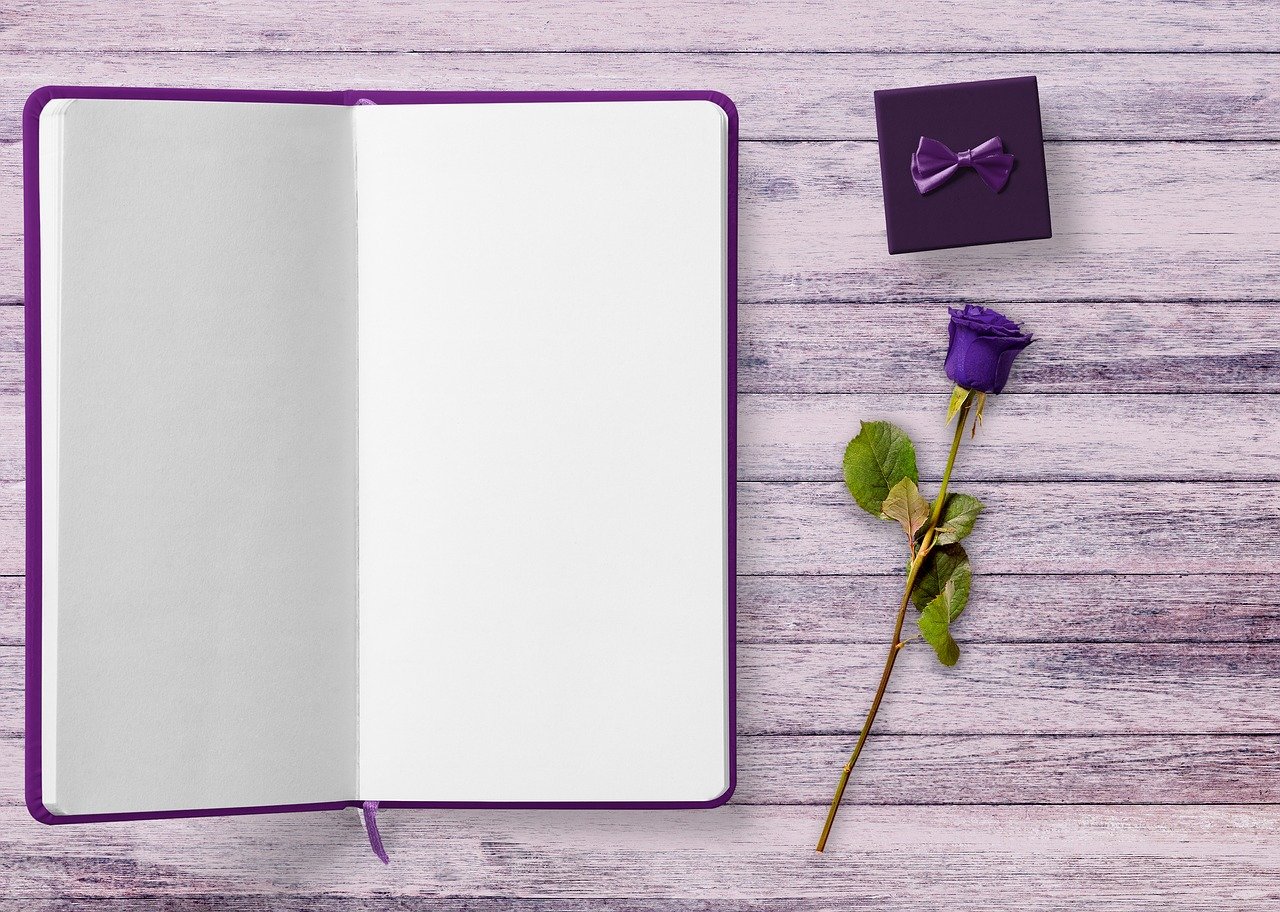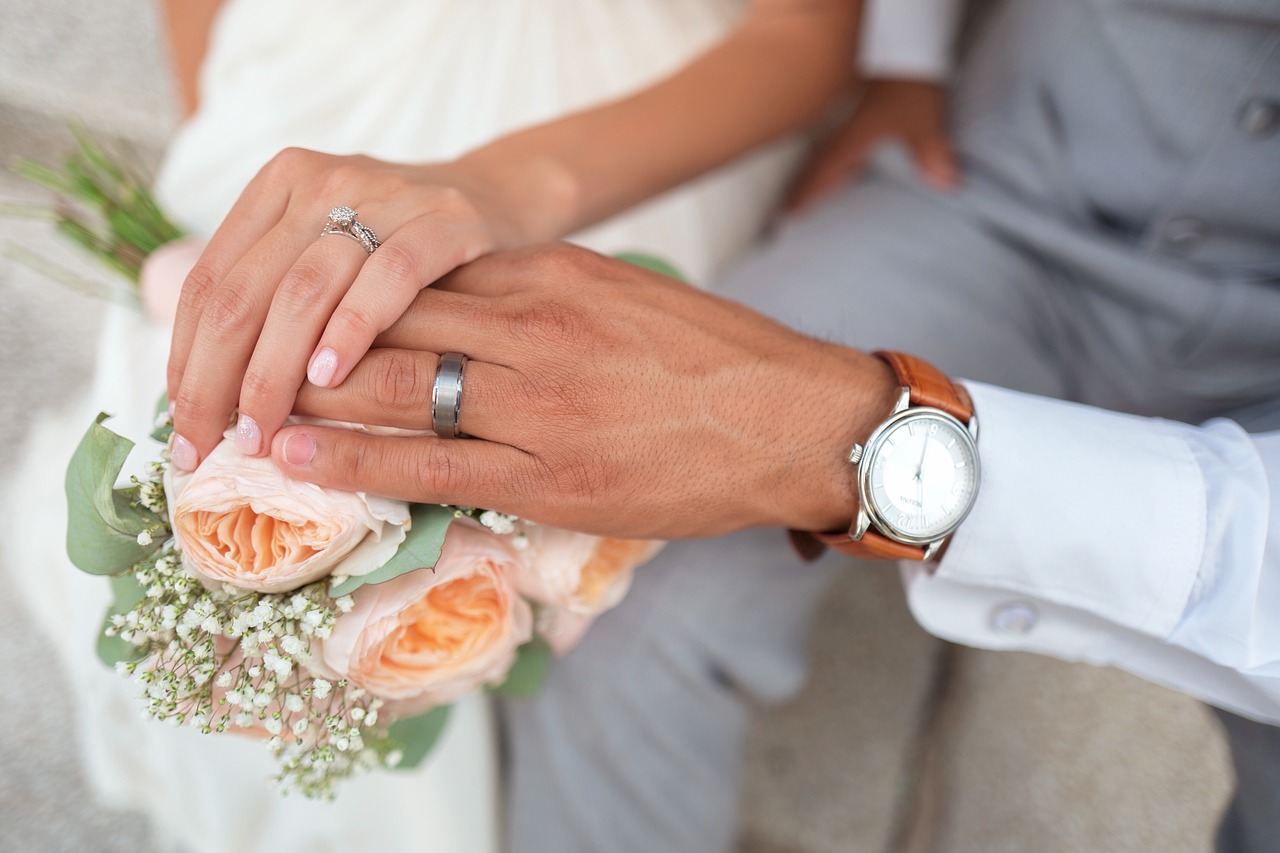A wedding is one of the most treasured days in a couple’s journey. Writing personal wedding vows is one of the most intimate and impactful moments among all the details of planning and anticipation.
Your vows provide an opportunity to express your heartfelt promises, share your dreams for your future together, and declare your love in a way that is uniquely yours.
This guide will help you navigate the process of crafting vows that are meaningful, authentic, and memorable.
Let’s get straight to the point
Writing personal wedding vows adds a meaningful and intimate touch to your ceremony. Start early to avoid stress, and write independently to capture your unique voice.
Reflect on your relationship by asking reflective questions and seeking input from trusted sources if needed. Use a free-writing approach to capture thoughts, then refine your vows with authenticity and a central theme.
Aim for a concise, sincere expression of love, and avoid clichés by focusing on specific moments. Practice reading aloud, consider creating a keepsake version and remember: genuine, heartfelt vows resonate the most, making your day unforgettable for you and your guests.
Preparing to Write Your Vows

The best vows come from careful reflection and heartfel writing. These steps will help you prepare:
Start Early
Waiting until the last moment can lead to stress and rushed writing. Begin drafting your vows at least three to four weeks before the wedding. Early preparation allows time for inspiration, thoughtful edits, and the opportunity to refine your words. Procrastination can feel tempting, but starting early ensures your vows are authentic and well-composed.
Write Independently
While discussing the general tone or length of your vows with your partner is common, write your vows separately. This way, each person’s words are uniquely their own, capturing personal reflections and promises. Set a dedicated time apart from wedding planning to focus on your thoughts, dreams, and intentions.
Why Writing Personal Vows Matters
Wedding vows are more than just ceremonial words; they lay the foundation for your marriage and serve as a guiding principle throughout your lives together. Personal vows make this moment distinct, creating a shared memory that encapsulates your bond and intentions. Writing your vows allows you to:
- Express your unique love story
- Highlight the qualities that make your relationship special
- Commit to the future you envision together
Crafting the Content of Your Vows
When it comes to writing, approaching the task with an open mind can help overcome writer’s block. Here are some tips to spark inspiration and guide you through the process.
Reflect With Key Questions
Use reflective questions to help you uncover the core of what you want to say. Try these prompts:
- What makes your relationship unique?
- Why did you choose this person as your life partner?
- What are your hopes and dreams for your future together?
Answering these questions can bring out heartfelt thoughts that form the foundation of your Seek Input and Guidance.
Consider consulting with the officiant or celebrant for insight and advice. They can offer suggestions for integrating traditional and personal elements and guidance on balancing humour with sincerity. A trusted friend or family member may also provide valuable feedback if you need a fresh perspective.
Putting Pen to Paper
With inspiration and reflection, it’s time to start writing. Follow these steps for an effective writing process.
Write Freely First
Begin by jotting down everything that comes to mind. Start with what you admire about your partner, the promises you want to make, and your hopes for your marriage. Don’t worry about structure at this stage. Once you’ve captured your raw thoughts, you can shape them into a cohesive message.
Experiment With Style
Your vows don’t need to follow a traditional format. Feel free to experiment with poetic language, spoken word, or song lyrics if that feels authentic. Some couples find inspiration in a shared memory or a private joke, weaving that sentiment into their vows. Let your creativity flow to make the vows truly yours.
Adding Depth to Your Vows
After drafting, take steps to make sure your vows are sincere, balanced, and emotionally resonant.
Be Authentic And True To Yourself
Authenticity is the key to moving vows. Stay true to your voice and avoid copying phrases you’ve heard elsewhere. Instead, share personal anecdotes or qualities that only your partner would recognise. You might want to include a light-hearted comment to bring a smile to your partner’s face, but remember to balance humour with sincerity.
Choose A Meaningful Setting For Writing
The setting can influence your writing process. Try writing your vows in a place that has significance to your relationship, such as the location of your first date or a favourite shared spot. This can help inspire words that reflect the depth of your connection.
Revising Your Vows
Revision is a natural part of writing. Here’s how to ensure your vows are polished but retain their original charm.
Limit Revisions
While it’s natural to want to perfect your vows, aim to limit your revisions to two or three rounds. Over-editing can dilute the message and create unnecessary stress. Give yourself time to reflect, but avoid excessive rewrites to preserve the authenticity of your initial words.
Create A Central Theme
Just as a story has a central theme, so can your vows. Choose a theme that symbolises your partnership: unconditional love, support, or laughter. Use this theme to guide the flow and unity of your vows.
Practice Reading Aloud
Reading your vows aloud can help you catch awkward phrasing and ensure the words flow smoothly. Saying them aloud will also help you feel more confident when delivering them on the big day. Ask a friend to listen or even record yourself for self-evaluation.
Finishing Touches
As the wedding day approaches, take a few final steps to prepare your vows for the ceremony.
Create A Keepsake Version
Consider printing your vows on quality paper or a small booklet you can keep as a souvenir. This will look nice during the ceremony and serve as a treasured keepsake for years to come. Give your officiant or a trusted friend a backup copy to ensure everything goes smoothly.
Keep It Brief But Meaningful.
While expressing your full emotions is tempting, keep your vows concise, aiming for about two minutes. This length allows you to communicate your feelings without overwhelming the ceremony.
Remember, the vows are a moment for you and your partner, so keep them focused and meaningful.
Avoid Clichés
Rather than using generic expressions, focus on specific moments or qualities that define your relationship. Instead of saying, “I love how adventurous you are,” you might share a particular story, like a memorable trip you took together. Specific details make your vows more personal and memorable.
Practical Tips for the Ceremony

When it’s finally time to deliver your vows, here are some practical tips to help the moment go smoothly.
Talk To Your Partner
While surprises are lovely, ensure that you and your partner are on the same page regarding length and tone. You can agree on a general outline without revealing too much, allowing for spontaneity and genuine reactions on the day.
Make Time For Practice
Practice makes perfect, and this is especially true for wedding vows. Practising beforehand helps ease nervousness and is a great opportunity to smooth out your delivery.
Aim to rehearse a few times in the weeks leading up to the wedding to feel comfortable and confident.
Rely On A Support System
Having a close friend or family member listen to your vows in advance can provide helpful feedback. They may catch things you didn’t notice or offer constructive advice. Choose someone who understands you well and can provide honest insights to strengthen your vows.
Embracing the Emotions
Your vows are vulnerable, and it’s natural to feel emotional. Letting your emotions show will make the moment even more powerful. Focus on pacing, pauses, and breathing to maintain composure while expressing the depth of your feelings.
Working with a Vow Writer
If you find it challenging to write your vows, consider enlisting a professional vow writer. They can help you articulate your thoughts while ensuring your voice shines through. A professional writer will guide you through the process, ensuring your vows reflect your unique relationship.
Conclusion
Remember, your wedding vows don’t need to be flawless. What matters most is that they come from the heart.
Vows are a celebration of your journey together, not a performance to be perfected. Focus on expressing your genuine commitment and love; your words will naturally resonate.
Writing personal wedding vows is a beautiful way to mark the beginning of your marriage. By reflecting, composing, and practising, you create a moment that will stay with you and your partner for a lifetime.
Start early, stay true to yourself, and remember that your vows are a promise and a celebration of love. With these tips in mind, you’ll be able to write vows that move you and your partner and everyone who shares in this special moment.

